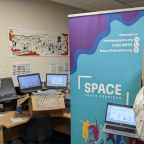
Ofsted release South West report
Ofsted has published its first ever report reviewing education standards in the South West.
The Annual Report 2012/13 for the South West finds that the proportion of good or outstanding primary and secondary schools in the region has increased. As a result, over 48,000 more pupils now benefit from a good or outstanding education than was the case 12 months ago.
Despite the improving picture, too many children and young people from poorer backgrounds do not do well enough. In 2012/13 there were 152,870 pupils eligible for free school meals (FSM). The pass rates for this group of children at Key Stage 2 and at GCSE were well adrift of the national pass rates for similar pupils in almost every local authority area across the South West.
In all local authorities across the region, with the exception for Poole, the proportion of pupils eligible for FSM gaining five good GCSE grades, including English and mathematics, was below the national level for similar pupils. This is especially the case for disadvantaged pupils in Swindon, Dorset and Bristol.
In some cases, pupils on FSM in otherwise high performing schools, often serving more advantaged areas, did far worse than similar pupils in schools with a high proportion of pupils eligible for FSM.
Bradley Simmons, Acting Regional Director for the South West, said: “Thanks to the hard work and determination of teachers and leaders over 48,000 more pupils in the South West now benefit from a good or outstanding education than 12 months ago. This is due to the commitment of teachers and leaders across the region who, for the most part, have high expectations of children and understand that only a ‘good’ standard of education is good enough.
“However, the strong performance overall masks the stark underperformance of children from poorer families. They are being left behind.
“At both primary and secondary school level, these children are being let down. Not a single local authority area met the national average attainment figures for children on free school meals at primary school. At secondary school, the picture is equally poor. Only Poole was able to meet the national average GCSE attainment level for children on free school meals.
“Tackling the achievement gap between the pupils on free school meals and their more affluent peers is a moral imperative. That is why Ofsted inspectors have taken a series of measures to help schools use the pupil premium fund more effectively to raise attainment for children on free school meals. We are determined to close this unacceptable gap.”
A large majority of further education (FE) providers in the South West are good or outstanding. However, 65,000 learners are still in provision that is less than good, mostly in large general further education (GFE) colleges and community learning provision.
For example, City of Bristol College, one of the largest in the country, performs poorly. This is a concern as over 17,000 learners and many employers in and around the urban and industrial centres of Bristol rely on this college for their studies and future training needs.
Alongside the regional report, Her Majesty’s Chief Inspector of Education, Children’s Services and Skills, Sir Michael Wilshaw, today published his second Annual Report, underpinned by the findings of more than 8,500 inspections of schools, adult learning and further education providers, and colleges carried out in England during 2012/13. At the launch, Sir Michael said that the challenge for the nation was to build on the improvements seen in the South West and elsewhere and accelerate progress so that England’s education system can match the best in the developed world.
The report includes separate tables showing the percentage of pupils attending good or outstanding primary and secondary schools, according to the latest Ofsted inspection judgements, broken down by local authority area. Also for the first time, Ofsted’s interactive tool, Data View, highlights the sometimes stark differences in performance of schools and colleges in local authority areas that share the same profile.











